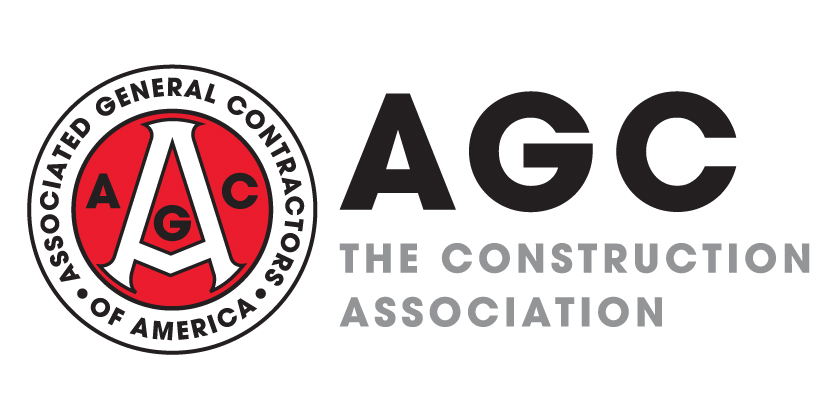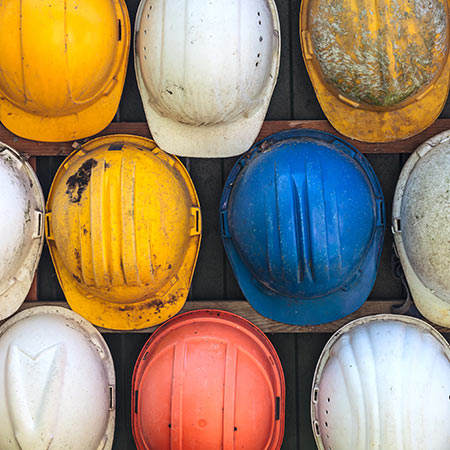
"Business conditions remained generally flat at architecture firms in September," the American Institute of Architects (AIA) reported in its monthly "Work-on-the-Board" report on Thursday. AIA's Architecture Billings Index (ABI) measures the percentage of surveyed architecture firms that reported higher billings than a month earlier, less the percentage reporting lower billings. Any score below 50 (on a 0-100 scale) indicates a decrease in billings. "But while the ABI score remained below the 50 threshold at 49.7, that score is 2.5 points higher than the August score, indicating that fewer firms saw declining billings in September. In addition, the design contracts index rebounded strongly to 54.4 this month (from 47.9 in August), as firms saw an increasing number of clients signing contracts for new projects. Firm backlogs also remained above six months in September (6.2 months on average), although they shrank modestly from a high of 6.5 months in June." Scores (based on three-month moving averages) varied by practice specialty: residential (mainly multifamily), 53.2, up slightly from 53.1 in August; mixed practice, 53.0, up from 49.9; institutional, 48.5, down from 49.8; and commercial/industrial, 45.3, down from 47.0. The past three scores for commercial/industrial practices have been the lowest since early 2010. "Overall, 52% of responding firms this month indicated that since the beginning of the year they have seen at least one of the following impacts on projects at their firm: 42% have projects that have been significantly delayed or put on hold, 33% have projects that have been significantly redesigned or scaled back, and 15% have projects that have been cancelled....By far, the most commonly cited reason behind these significant project changes, delays, and/or cancellations is that the construction budget is insufficient for the project as currently conceived (76% of firms). Nearly half of firms (47%) cited client nervousness about proceeding, 29% selected financing problems, and 19% selected tariff or trade concerns as the reasons."
The National Association for Business Economics (NABE) reported today that only 20% of 101 corporate and association economists in its third-quarter (Q3) survey expect growth of inflation-adjusted gross domestic product (real GDP) to exceed 2% from Q3 2019 to Q3 2020. That share is down from 48% of respondents who expected real GDP growth to exceed 2% in the previous survey, which covered the Q2 2019-to-Q2 2020 outlook. Of the 63 respondents to a question regarding expected capital spending on structures at their firms in the next three months, 25% expect an increase and 16% expect a decrease. The 10-point difference between these shares (based on unrounded numbers) declined from a net positive reading of 16 in July.
There were mixed reports this week on steel pricing. "After two-plus months of price slides, the domestic suppliers announced a fresh round of price increases this week," Majestic Steel's "Core Report" reported today. "ArcelorMittal led the way on Thursday with an announcement to raise pricing $40 [per ton] across the board for all flat-rolled products....Shortly after Arcelor's increase, NLMK and USS announced a similar $40/t increase of their own. With Nucor essentially releasing a verbal increase during their conference call, it is expected that most, if not all, domestic flat-rolled suppliers follow with similar increases of their own." On Wednesday, New South Construction Supply's October e-newsletter reported, "Rebar pricing remained stable through September and into October. Scrap again dropped $35/ton from September's number and finished at $217/ton, but mills are holding their current pricing and we do not anticipate any major changes over the next few weeks. Mills are operating with ample inventory on the ground and lead times are down to roughly a week depending on the diameter and length of the bar needed." The Washington Post reported on Sunday, "Steel prices—which soared as the tariffs were introduced—have since fallen below where they were at the outset of the trade war, dropping by more than 40% since last summer, according to one key metric....purchasers of steel see little incentive to place new orders that may prove less expensive the following week....Steel prices soared from about $600 to more than $900 as the tariffs were first imposed, according to S&P Global Platts, but have since fallen to about $500."
"Led by strong performance in the volume of structural cold-formed steel framing products, total manufacturing volume of cold-formed steel framing stud and track increased 8.6%" year-over-year (y/y) from Q3 2018 to Q3 2019, investment analyst Thompson Research Group reported on Thursday, based on a survey it conducted in "coordination with the Steel Framing Industry Association [of] the 30+ steel framing manufacturers in the United States. This survey is a good read-through on future gypsum board and other building fit-out related products as structural and nonstructural steel studs lead in the construction process." Structural products, "typically used for load-bearing applications, such as exterior walls, lateral force resisting systems, floors and roofs, reported a 10.3% y/y increase in manufacturing volume. Also during the quarter, the volume of nonstructural framing products (used primarily for interior wall construction) increased 15.9% y/y."
Construction consultancy Rider Levett Bucknall reported on October 10 that its National Construction Cost Index increased by 1.3% between April 1 and July 1 and by 5.5% y/y. "Chicago, Honolulu, Phoenix, San Francisco and Seattle all experienced increases over 1.3% in the quarter. Boston, Denver, Las Vegas, Los Angeles, New York, Portland and Washington, D.C. experienced relatively modest gains of less than 1.3%....Our Comparative Cost Index tracks the 'true' bid cost of construction, which includes, in addition to costs of labor and materials, general contractor and sub-contractor overhead costs and fees (profit). The index also includes applicable sales/use taxes that 'standard' construction contracts attract."




